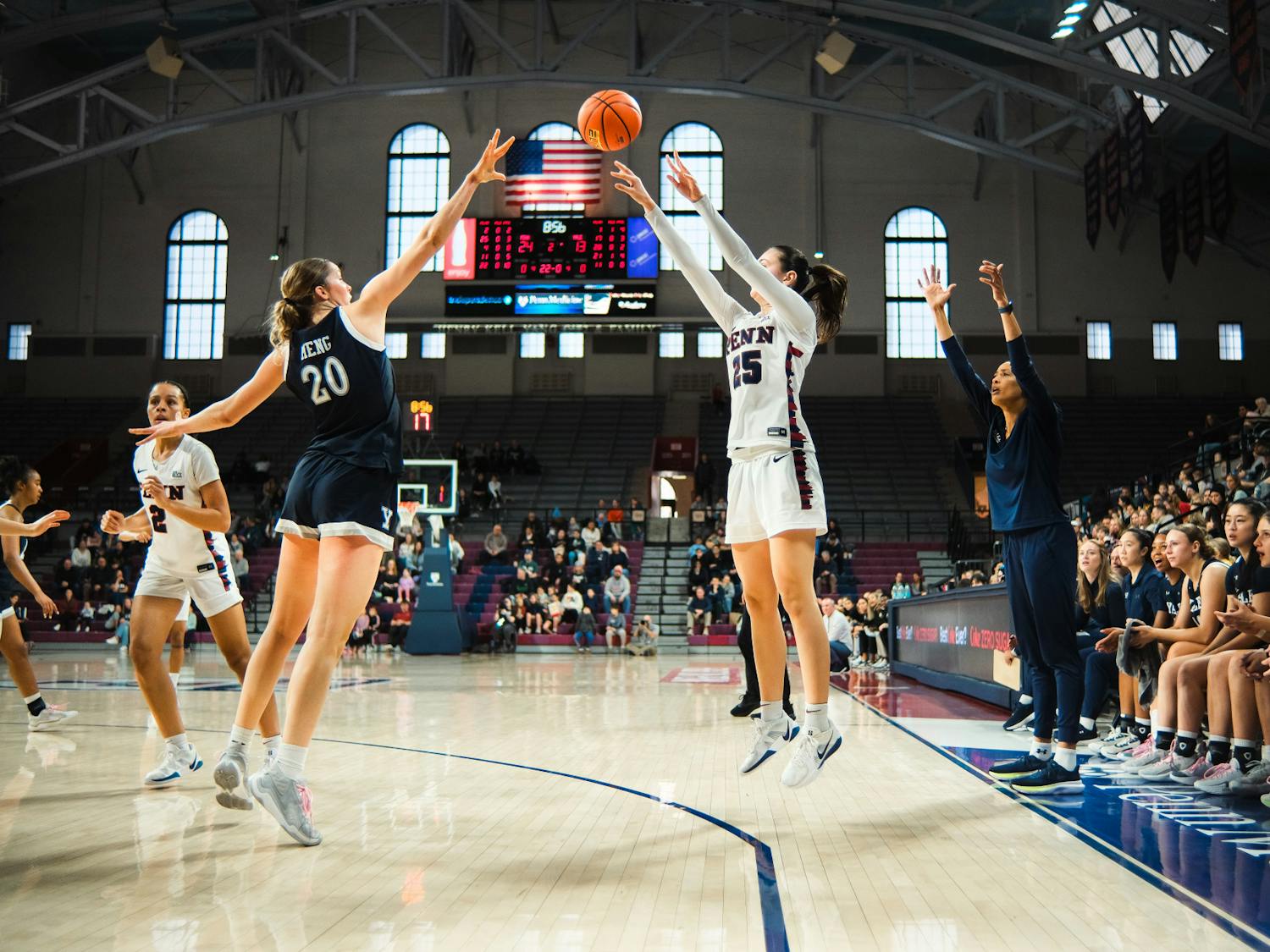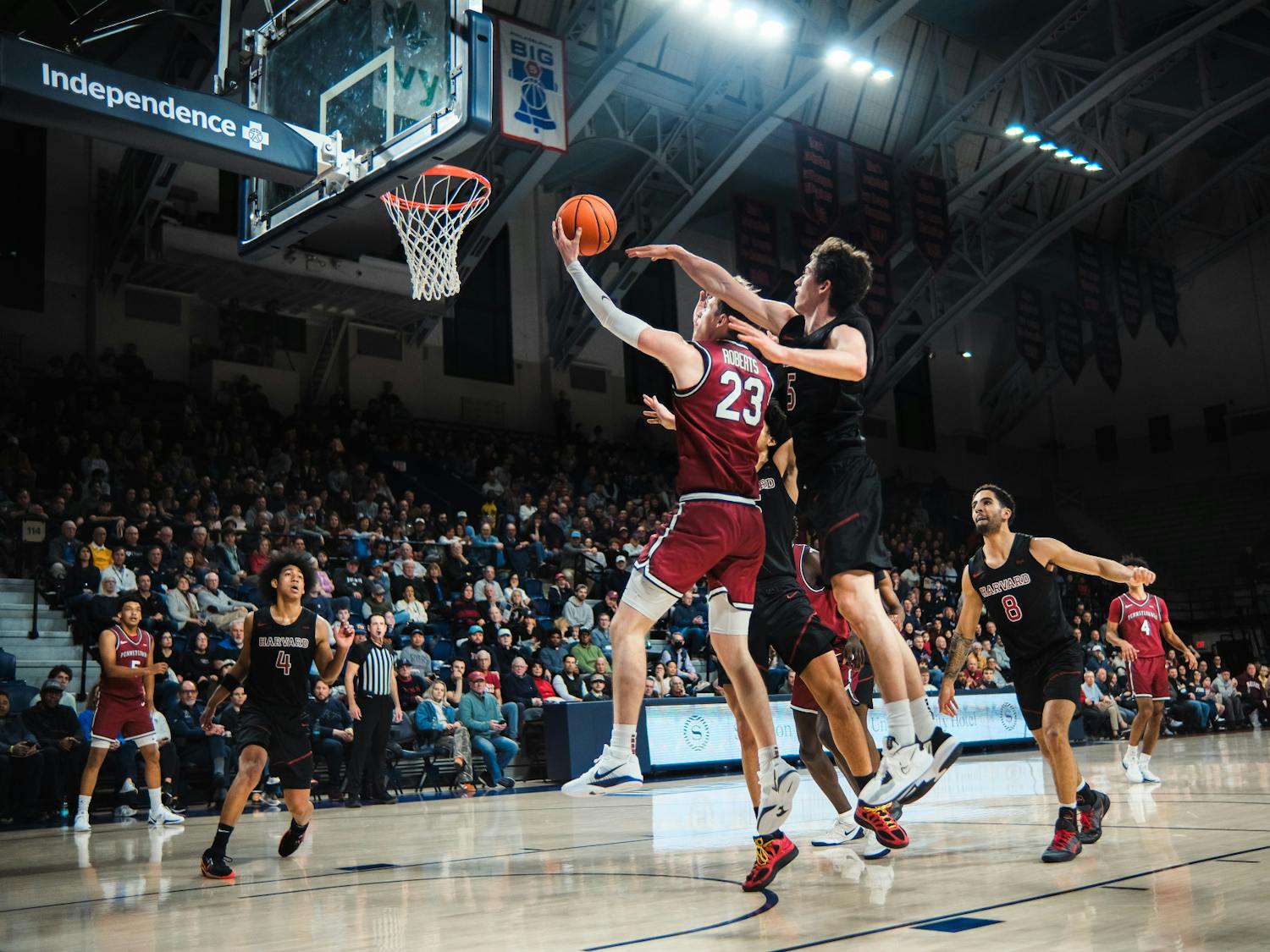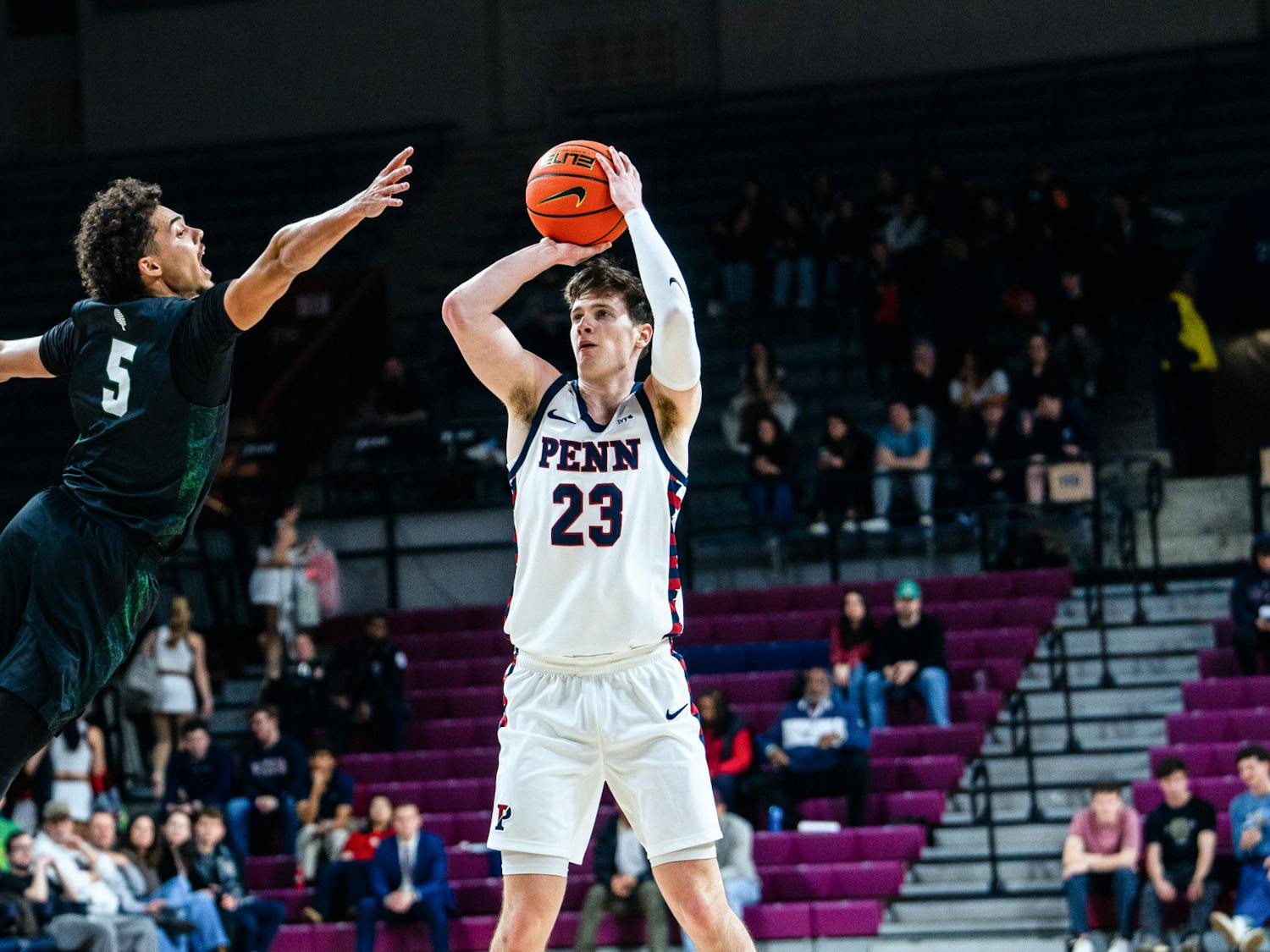The first thing I notice about Malcolm Gladwell is that he looks absolutely nothing like the pictures.
Portrayed in black-and-white, soft-focus publicity shots as a real-life Sideshow Bob, the best-selling author of what seems like a billion books has had his famously frizzy hair significantly shrunken down.
But the 730 souls uncomfortably packed into Harrison Auditorium have bigger things to think about than Gladwell’s resemblance to obscure pop culture figures.
Like his message, for one.
After spending half his speech on the extended anecdote of a coal mining company denying the link between mining and black lung disease, Gladwell shakes the crowd up with a mere word: “football.”
He enumerates a long list of ex-NFL players that have committed suicide in recent years. Junior Seau. Dave Duerson. Justin Strzelczyk. Andre Waters. All linked together by the discovery during autopsy of a disease known as Chronic Traumatic Encephelopathy, a scourge of the brain that leads to rapid mood swings and dementia.
Owen Thomas had CTE too.
Thomas committed suicide in April 2010 just weeks after being named one of Penn football’s captains as a junior. After the 2009 second-team All-Ivy defensive end hanged himself, an examination of his brain tissue revealed Thomas was in the earliest stages of CTE.
Gladwell’s anger builds as he reflects on his laundry list of players brought down by CTE, pointing to his head again and again, as if trying to say that he knows the pain these men have endured. That he feels it on some visceral level.
Gladwell admits that he doesn’t know all the causes of CTE. No one does. But he knows what he wants. And that is to ban football at the university and high school level.
“If you told me that some portion of a class studying physics would someday come down with dementia as a result of their studies, I would say, ‘Well, that’s a hard call.’ Should we ban physics or not? We kinda need physics, right?”
The crowd laughs nervously as the funny-looking Canadian barbecues one of society’s sacred cows right before its very eyes.
“This is not physics.”
Gladwell’s right. Football is not physics. People don’t spend their lives cheering their hearts out for their favorite particle accelerator.
To see if football has a future, I know I have to go inside the game. From the people who have been there. Who know that there’s something more to the game than just violence…
I call up Frank Deford expecting to hear the voice of a true defender of the faith.
A Sports Illustrated writer for the past 50 years, Deford has written 69 cover stories in his career for the famous sports magazine.
My interview with Deford comes on the heels of a casual email asking to interview him for a feature. I don’t expect a response at all. Instead, it turns out that he wants to talk about this most polarizing of issues.
There’s a palpable nervousness in the air when I call Frank Deford, an iPhone on “speaker mode” and a digital voice recorder standing in for the larger-than-life presence I have on the other end of the line.
His voice isn’t nearly as, well, gruff, as I expect it to be when he picks up, putting me somewhat at ease.
And I ask the man who’s seen it all in football for his thoughts about Gladwell’s speech and the vehemence with which he denounced the sport as a cast-off relic of a bygone, brutal era.
There’s a pregnant pause on the other end of the line. A shudder passes through me as I envision the doomsday scenario of the call being dropped.
But then, the wise man speaks. Surely, with his trademarked biting wit and sarcasm, Deford will send the insolent outsider back from where he came!
“It’s amazing to me that the Ivy League continues to play football. I think that’s crazy.”
Wait. What?
“How many people come out to Penn games? How many people come out to Princeton games?”
A few thousand.
“For that?! For that?! Smart guys are playing this game where they can get hurt. On top of that, it’s a very expensive game. If you take the money that goes into football and have all sorts of other sports or use it for intramurals…”
My face falls.
“As middle-class parents, more and more, spread through the United States, say: ‘I don’t want my son to play football,’ that’s where it’s going to be endangered.
“It’s going to end up as a gladiator sport, like boxing, where only poor people who are prepared to risk their brains will play it.
“I think a lot of schools will stop playing football, and I think the Ivy League should take the lead in that.”
Is this it? Is football condemned to death? The phone call ends cordially, but I am left with a numbing, existential fear in my body, which I try to shrug off by reassuring myself that he doesn’t know what it’s like, he didn’t play the game…
***
Mark Kelso thinks he has the inside track on a solution.
A victim of two severe concussions early in his career, the Buffalo Bills safety didn’t appear to have much time in store for his career. Resolute, Kelso became the first player in the NFL to wear a Pro Cap, a foam outer padding over the helmet that saved his career at the expense of me perpetually thinking he resembled the Great Gazoo.
Why didn’t it ever catch on?
Simple. Players are vain.
“It didn’t look very good. It made my helmet look bigger, which it was, I mean, it increased the circumference of the helmet,” he says. “Nowadays, ironically, the helmet is probably the same size as my helmet was with the addition of the Pro Cap.”
The technology behind the Pro Cap was simple physics. Foam, by nature, absorbs an impact and slows the forces that reach the head. At the expense of aesthetics, the foam layer would reduce the impact to a player’s head.
But false concerns about the foam’s long-term memory led to the Pro Cap’s demise.
But the Guardian Cap, a product that Kelso has embraced, is making an impact of its own.
Much like the Pro Cap, the Guardian Cap goes over the helmet, and thankfully, no longer makes the wearer resemble a Flintstones character. Soft, yet durable, it looks more like a boxer’s protective headgear than anything else.
“You have an opportunity to slow down the acceleration forces before they actually impact the head,” he says. “And nothing else can do that unless you have something on the outside of the helmet which has to potential to have some memory and to mitigate those forces.”
The Guardian has already started to catch on around the country — it’s being used by approximately 8,000 different high school and college players.
But high school and college are a long way from the NFL, and I can’t help but wonder if Kelso will ever have the chance to see the product he’s championed used on a prime-time stage.
Billy Taylor isn’t expecting my call, either.
I can barely hear the former Giants running back over what appears to be a couple hundred people clamoring in the background.
“I thought I told you to call me in the morning,” he says.
It’s 11:00. Clearly, we have different definitions of the word “morning.”
“Call me back at one. And be on time this time.”
I dial him again right as the clock on my iPhone turns to 1:00 and receive a far more cordial reception from the man who was impressed that a person of my age even recognized him when my overweight-13-year-old self approached him at a charity dinner.
For a man suing the NFL, his remarkable optimism comes in loud and clear.
“I’ve watched the NFL get better in their research and the way that their players practice and play the game,” he says. “And I applaud them for making the right move. I’ve always thought it was just little things that made the difference from a person getting a concussion and not getting a concussion.”
The NFL has made plenty of strides in terms of protecting its players, mandating the presence of independent neurologists on the sidelines of games, outlawing blows to the head of defenseless receivers and encouraging heads-up tackling at the youth level.
But in spite of everything that the NFL does, it all comes with a tacit admission that the sport is an inherently violent game.
SEE ALSO
Your Voice | Preserving a dream








